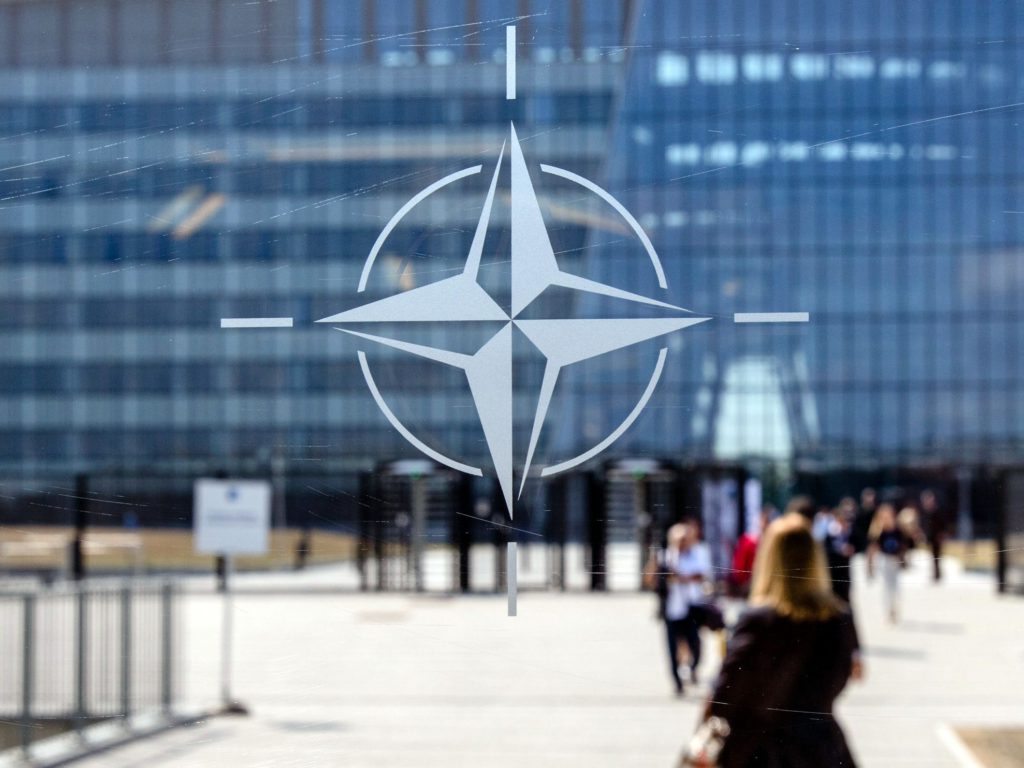Turkish Foreign Minister Mevlut Cavusoglu applied fresh pressure on Sweden to make concessions as he traveled to the US for talks on the sale of F-16 fighter jets, which may depend on Turkey’s ratification of the NATO expansion.
(Bloomberg) —
Turkish Foreign Minister Mevlut Cavusoglu applied fresh pressure on Sweden to make concessions as he traveled to the US for talks on the sale of F-16 fighter jets, which may depend on Turkey’s ratification of the NATO expansion.
Cavusoglu is expected to meet his US counterpart Antony Blinken in Washington later Wednesday to discuss the aircraft sale as well as Turkey’s security concerns about US-backed Kurdish fighters in Syria.
Turkey has agreed to allies inviting Sweden and Finland to join the North Atlantic Treaty Organization, but the expansion has stalled as Ankara holds out on ratifying the applications.
The US, the most powerful country in the military alliance, has put its weight behind the Nordic nations. It’s also using a potential $20 billion sale of F-16s as a lure to get Ankara to fall in line.
Cavusoglu’s meeting with Blinken comes amid increased tensions between Turkey and Sweden after protesters suspended an effigy of President Recep Tayyip Erdogan upside down in Stockholm last week.
The move was condemned by Swedish policy makers. It was also reported to police as slander, but a Swedish prosecutor declined to investigate, saying the incident was not a crime under Swedish law.
The decision to take no legal action is “absurd,” Cavusoglu said on Tuesday during a joint news conference with visiting Iranian counterpart Hossein Amirabdollahian.
Turkey has continued to call on Sweden to crack down on groups outlawed in Turkey, and Sweden insists it’s in compliance with an agreement hammered out at NATO’s June summit in Madrid last year, which allowed the expansion process to move forward despite initial resistance from Turkey.
Still, Ankara remains unsatisfied and wants Sweden to take further steps, including extradition of suspects, to change its position.
Sweden’s government can’t overrule courts in extradition cases where the judiciary has declined to send the accused to Ankara.
“Either they will fall victim to these mines laid by terrorists, or we will walk forward by implementing the agreement we’ve signed considering everyone’s security,” Cavusoglu said.
“The choice is Sweden’s.”
As Erdogan braces for crucial elections that are likely to take place in May and is keen to consolidate support of nationalists, the situation seems more in limbo — even if NATO diplomats are confident it will be resolved in the end, potentially in time for the alliance’s summit in Vilnius in July.
Speaking at the World Economic Forum in Davos on Tuesday, Finland’s Prime Minister Sanna Marin said there should be no obstacles to the Nordic countries joining NATO, given they fulfill all the criteria for membership set by the alliance and have both “ticked all the boxes” during their application process.
–With assistance from Niclas Rolander.
More stories like this are available on bloomberg.com
©2023 Bloomberg L.P.










